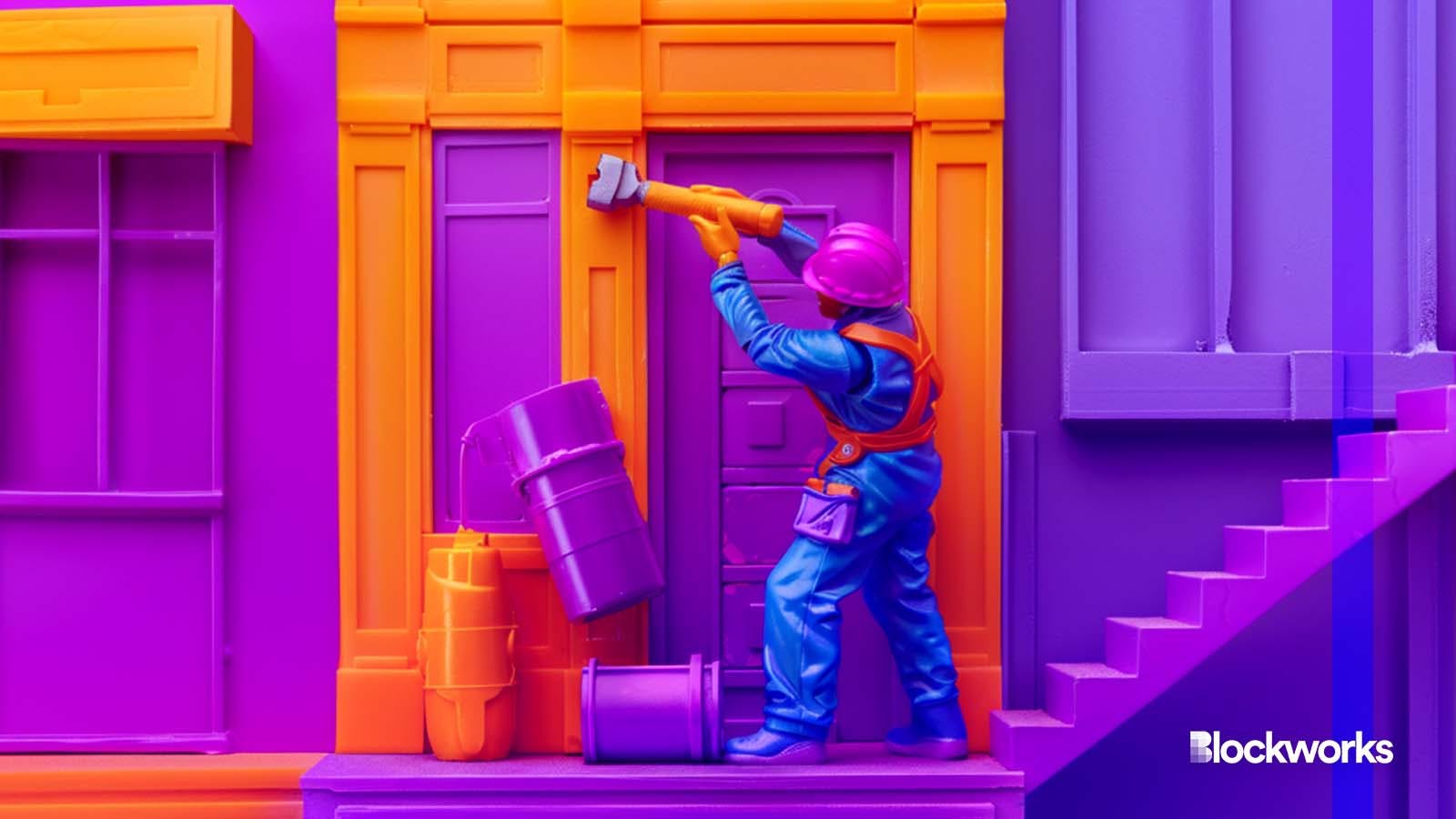We need more ‘boring’ Web3 companies solving real problems
Don’t overlook developers and startups tirelessly building real infrastructure for something flashier

Midjourney modified by Blockworks
There has been a recent explosion of companies operating at the blockchain layer, all boasting about having the best and fastest blockchain technology.
But let’s get real here — these are “hot” companies working on the “fun” stuff like NFTs and Web3-based social media, or even tokenized investment properties and other vanity projects.
None of this will matter if the basics aren’t fixed, and the basics desperately need to be fixed. I’m talking about real-world connections, on- and off-ramps and reducing friction.
Until these fundamental problems are addressed, the blockchain industry will continue to struggle to gain mainstream adoption and credibility.
In the world of Web3, fintech and blockchain, trends come and go, but one thing remains the same — the need to remove friction. While the industry is full of projects claiming to be the fastest or the best, the truth is that differentiation remains a challenge.
We need less grandiose claims and extravagant promises — we need more “boring” companies solving Web3’s less-sexy problems.
Building financial rails and interconnected systems takes time, money and precision. Even if you are successful, you can find far fatter margins in other Web3 business models. Yet, these rails are essential for anything else — indeed, everything else in Web3 — to be successful.
We constantly hear the buzzwords of decentralization, scalability and cross-chain interoperability in Web3. But the percentage of companies spending money and time making them real is small.
While one promising indicator is the number of Web3 VCs raising money for “infrastructure,” we need more. In order to achieve mass adoption, we need to address the challenges that make it hard for people to transition into the blockchain ecosystem.
One of the biggest challenges remains reliable and trustworthy on- and off-ramps. Last week, we saw an incredible spike in the price of bitcoin and one of the most well-known on-ramps into crypto, Coinbase, went down. This tells me even the most established providers don’t yet have the infrastructure to scale properly to satisfy millions more, if not billions, more users.
Yes, on-ramps and off-ramps are not the most exciting features to build, but they provide the foundation for a stable and reliable financial ecosystem.
However, there is a reason why there aren’t so many of these solutions yet — it is a difficult problem to solve and can’t be out-coded.
Of course, it is technically challenging to build ramps to service the thousands of digital currencies and hundreds of fiat currencies. Still, even if you are successful, the technology only exacerbates the economics. Payments and currency exchange businesses often “race to the bottom” to provide even lower fees and faster service in a competitive market.
Read more from our opinion section: Web3 demands remote work, and the world should listen
Understandably, it’s hard to convince investors that you should use their money to build the financial infrastructure your competition will then use to go after you. And while using their money, you will also need to spend time convincing regulators of your work’s merits — education that another company could benefit from. At the end of the day, your only prize may be the ability to continue cutting your fees to stay competitive.
From this vantage point, it’s easy to see why much of our sector is content to make on- and off- ramps someone else’s problem.
It’s even easier to see why the developers, startups and companies tirelessly building this infrastructure are overlooked for something flashier.
But for these flashy apps and tokenized models to work, we need infrastructure.
On- and off-ramps are crucial for reducing transaction friction and connecting users from traditional financial systems to decentralized ones.
A streamlined and user-friendly experience can remove complexities and reduce entry barriers, making the society-changing impacts of blockchain more accessible and efficient.
It will bring more people in, including regulators, who we need to sign off on our inventions. Which then begets even more innovation.
So please, if you’re a founder or soon-to-be founder, solve the unsexy problems. Reliability is the currency of trust in the fintech sector. Positioning oneself as a provider of unflashy yet effective solutions speaks volumes, especially in a season where Web3 has seen too many exaggerated claims.
If you’re a VC or angel investor, allocate some of your funding to the basic problems, not only for the companies building apps or services that can’t be fully used yet. Of course, don’t stop funding the platform level either. We need their vision to pull more people into both Web3 and its infrastructure.
Get the news in your inbox. Explore Blockworks newsletters:
- The Breakdown: Decoding crypto and the markets. Daily.
- 0xResearch: Alpha in your inbox. Think like an analyst.






